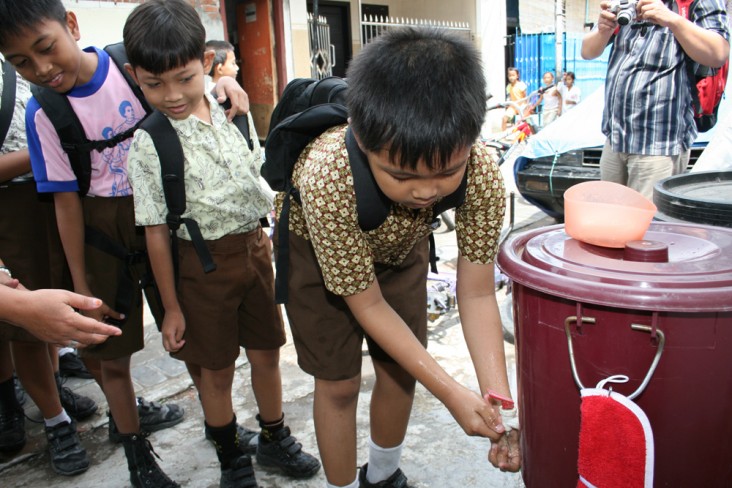- Who We Are
- Mission, Vision and Values
- Organization
- Leadership
- Office of the Administrator
- Bureaus
- Africa
- Asia
- Europe and Eurasia
- Latin America and the Caribbean
- Middle East
- Democracy, Conflict and Humanitarian Assistance
- Economic Growth, Education and Environment
- Office Of Economic Policy
- Office of Development Credit
- Office of Education
- Office of Energy & Infrastructure Programs
- Office of Forestry and Biodiversity
- Office of Gender Equality & Women’s Empowerment
- Office of Global Climate Change
- Office of Land and Urban
- Office of Local Sustainability
- Office of Private Capital and Microenterprise
- Office of Trade & Regulatory Reform
- Office of Water
- Food Security
- Global Health
- Legislative and Public Affairs
- Management
- Policy, Planning and Learning
- Foreign Assistance
- U.S. Global Development Lab
- Independent Offices
- Mission Directory
- Staff Directory
- Advisory Committee
- Board for International Food and Agricultural Development
- Mission Directors
- Coordinators
- Global Development Council
- USAID History
- Operational Policy (ADS)
- Transparency
- Resource Portal

Globally, 663 million people lack access to improved sources of drinking water and 2.4 billion do not have access to adequate sanitation. Lack of access to safe water and sanitation services directly impacts human health, educational opportunities and economic growth. As the number of people in the world increases, water scarcity is forecast to worsen. If current consumption patterns hold, two-thirds of the world’s population will live in water-stressed conditions by 2025.
Achieving water security for regions, nations and individuals is one of the greatest development challenges confronting the world today. Water is a foundational element of development. By its nature, as a basic and essential resource, water considerations cut across nearly every aspect of USAID programming. To address global waterrelated challenges, USAID seeks to save lives and advance development through improvements in water supply, sanitation, and hygiene (WASH) programs, and through sound management and use of water for food security.
Our Work
In 2012, USAID established—within the Bureau for Economic Growth, Education and Environment—the Office of Water and a Global Water Coordinator, to collectively lead water programming across the Agency. The Water Office coordinates implementation of the Agency’s Water and Development Strategy and supports the Agency’s alignment with the Water for the World Act of 2014. The Water for the World Act authorizes continued foreign assistance on WASH and seeks to direct resources to countries where access to services are needed most. The Water Office also promotes integration with the Presidential Initiatives of Global Health and Feed the Future and with other development objectives
Strategy and Program Focus
In 2013, USAID launched its Water and Development Strategy, the first in the Agency's history. The goal of the Strategy is to save lives and advance development through improvements in water supply, sanitation and hygiene (WASH), and sound water management for food security. The strategy designates priority countries (mainly in Africa and Asia) for water assistance based on greatest needs and opportunities.
By 2018 the Strategy will improve health outcomes through sustainable WASH by providing 10 million people with sustainable access to an improved drinking water source and 6 million people with sustainable access to an improved sanitation facility. In addition USAID will manage water for agriculture sustainably and productively to enhance food security benefiting 2 million people.
In 2005, Congress passed the Senator Paul Simon Water for the Poor Act in support of WASH as a foreign affairs priority. Since then, the Agency’s WASH portfolio has undergone a period of rapid growth, with an annual directive requirement (focused on drinking water and sanitation service delivery within the context of sound water resources management) growing from $295M in 2008 to $400M in 2016. In 2014, this commitment was renewed through bipartisan Congressional and Presidential support to pass the Senator Paul Simon Water for the World Act of 2014. The Act calls for more targeted, effective and sustainable investments for WASH programs to countries where access to services are needed most. Lead sponsors of the Act included Congressmen Blumenauer and Poe, and Senators Durbin and Corker.
The Water for the World Act of 2014 incorporates key portions of the Water Strategy, such as designation of priority countries pursuant to needs based criteria. The Act also established a single point of leadership within USAID for the implementation of the statute, the Global Water Coordinator (currently held by James Peters, Deputy Assistant Administrator for Water in E3).
Results
The Agency is currently on track to meet or exceed the Water and Development Strategy's targets. Since the release of the Strategy, the Agency has reached more than 7.6 million people with improved water access; 4.2 million people with improved sanitation; and 3.1 million people have benefited from improved water management for agriculture.
E3’S Partners
The Water Office closely collaborates with priority country Missions and other relevant Washington bureaus and offices, including the Bureau for Global Health, the Bureau for Food Security, the Global Development Lab, priority country Missions, and other E3 offices to work towards integrated programming to achieve optimal impact for our beneficiaries.
Furthermore, we closely collaborate with a variety of private sector, international donor agencies, and NGO stakeholders including but not limited to the World Bank, UNICEF, Sanitation and Water for All, the Coca-Cola Company, Gap Inc., the International Water Management Institute and InterAction.
Contacts
Chris Kosnik, Water Office Director
Website: www.globalwaters.org
Email waterteam@usaid.gov
Follow us on Twitter: @USAIDWater







Comment
Make a general inquiry or suggest an improvement.